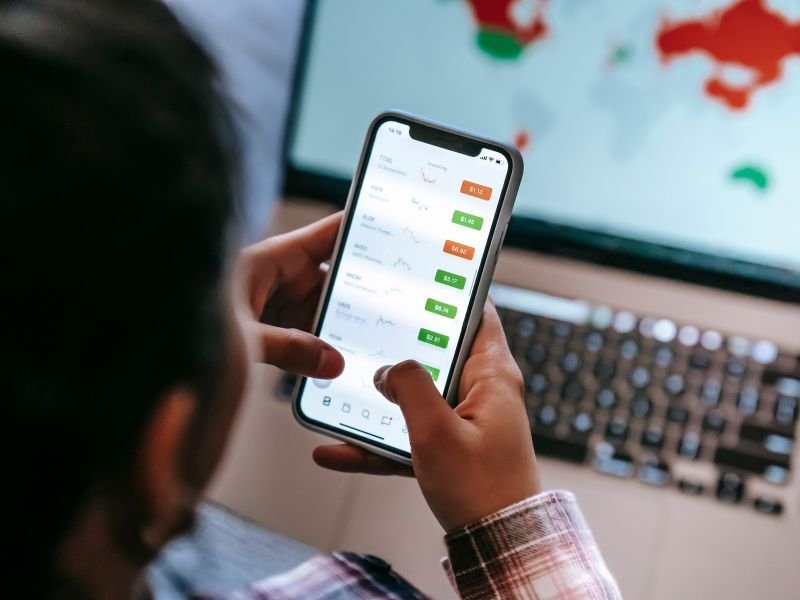OPay is a prominent financial technology company that has made significant waves in Nigeria’s digital financial services sector. The platform provides a range of services, including mobile payments, ride-hailing, food delivery, and more. Since its launch, OPay has gained substantial traction and has become a household name in Nigeria. But who exactly owns OPay, and what is the story behind its rise in Nigeria?
The Origin of OPay
OPay, short for Opera Pay, was originally a payment service launched by Opera Software in 2018. Opera Software, a Norwegian company best known for its web browser, decided to diversify its offerings by entering the fintech space, targeting emerging markets like Africa. The company aimed to leverage its existing user base and brand recognition to establish a foothold in the burgeoning digital financial services industry in Nigeria.
The initial focus was on providing a mobile-based payment solution to address the needs of the unbanked and underbanked population in Nigeria, a market with tremendous growth potential due to the low penetration of traditional banking services. Over time, OPay expanded its services to include ride-hailing, food delivery, and other utility services, thereby evolving into a super-app akin to China’s WeChat or India’s Paytm.
Ownership of OPay
Opera Software
The primary owner of OPay is Opera Software, the Norwegian company founded by Jon Stephenson von Tetzchner and Geir Ivarsøy in 1995. Opera Software is widely recognized for its web browser, which has a significant user base in various parts of the world, including Africa. The decision to enter the fintech space was a strategic move by Opera to diversify its revenue streams beyond its browser business.
In 2016, Opera Software was acquired by a consortium of Chinese investors led by the technology investment firm Golden Brick Capital Private Equity Fund. This acquisition allowed Opera to leverage additional financial and technological resources to expand its business in emerging markets like Africa.
Zhou Yahui
Zhou Yahui, a Chinese billionaire and entrepreneur, is a key figure behind OPay’s success in Nigeria. He is the chairman and CEO of Kunlun Tech, a Chinese technology company that initially acquired a significant stake in Opera Software. Zhou is also the founder of Beijing Kunlun Tech Co. Ltd., a company known for its investments in various technology firms globally.
Under Zhou’s leadership, Opera Software made a strategic pivot towards digital financial services in Africa, resulting in the launch of OPay. His vision was to create a multi-functional platform that could serve various consumer needs, from payments to everyday services. Zhou’s influence and investment have been crucial in shaping OPay’s business strategy and growth trajectory in Nigeria and beyond.
Investment Backing
OPay’s growth in Nigeria has been fueled by substantial investment from various venture capital firms and strategic investors. In 2019, OPay raised $50 million in a Series A funding round led by Chinese investors, including Source Code Capital, Sequoia China, and GSR Ventures. Later that year, the company raised another $120 million in a Series B funding round, with prominent investors such as Meituan-Dianping, DragonBall Capital, and SoftBank Ventures Asia participating.
These investments have enabled OPay to scale rapidly, expanding its services and reach across Nigeria and other African countries. The financial backing from these investors also underscores the confidence in OPay’s business model and its potential to disrupt the financial services landscape in Africa.
OPay’s Business Model and Services
OPay started as a mobile payment platform but has since evolved into a multi-service platform offering a wide range of services, including:
Mobile Payments
OPay’s core service is its mobile payment platform, which allows users to make seamless transactions such as money transfers, bill payments, and airtime purchases. The app aims to provide a convenient alternative to traditional banking, especially for the unbanked and underbanked population in Nigeria.
Ride-Hailing
In 2019, OPay launched its ride-hailing service, Oride, as part of its strategy to diversify its service offerings. Oride quickly gained popularity in major Nigerian cities like Lagos, offering affordable and convenient transportation options. However, the service was later suspended due to regulatory challenges and increased competition.
Food Delivery
OPay’s food delivery service, OFood, was another extension of its platform. The service aimed to connect users with local restaurants, providing a convenient way to order food. Like Oride, OFood faced challenges and was eventually scaled down to focus on the core payment services.
Utility Services
OPay also offers utility payment services, allowing users to pay for services such as electricity, water, and cable TV through its platform. This service is particularly valuable in a market where access to traditional banking is limited, providing users with a convenient way to manage their utility payments.
Investment Services
Recently, OPay has ventured into digital investment services, providing users with opportunities to invest and save through its platform. This move aligns with the company’s goal of becoming a one-stop-shop for financial services in Nigeria.
The Impact of OPay in Nigeria
OPay has had a significant impact on Nigeria’s financial services sector, particularly in promoting financial inclusion. By providing a platform that offers multiple services beyond payments, OPay has made it easier for Nigerians to access financial services without relying on traditional banks.
Financial Inclusion
One of OPay’s primary goals is to increase financial inclusion in Nigeria. According to data from the Central Bank of Nigeria, a significant portion of the Nigerian population remains unbanked or underbanked. By offering accessible financial services through mobile technology, OPay has brought more people into the formal financial system.
Job Creation
OPay has also contributed to job creation in Nigeria through its various service offerings. For example, its ride-hailing service, Oride, provided employment opportunities for thousands of riders before it was suspended. Similarly, its agent network, which facilitates cash deposits and withdrawals, has created business opportunities for individuals across the country.
Competition and Market Dynamics
OPay’s entry into the Nigerian market has intensified competition in the fintech space. It has challenged traditional banks and other mobile payment providers to improve their services and reduce costs. This competition has ultimately benefited consumers, who now have access to better financial services at lower prices.
Challenges Faced by OPay
Despite its success, OPay has faced several challenges in the Nigerian market. These include regulatory hurdles, competition, and operational issues.
Regulatory Hurdles
Regulatory challenges have been a significant obstacle for OPay. In 2020, the Lagos State Government introduced new regulations for ride-hailing services, which led to the suspension of Oride. Similarly, OPay’s operations in the financial sector have required it to navigate complex regulatory environments to ensure compliance with local laws.
Competition
The Nigerian fintech space is highly competitive, with numerous players vying for market share. OPay faces competition from both traditional banks and other fintech startups like Paga, Flutterwave, and Interswitch. This competition has pushed OPay to continuously innovate and expand its service offerings to remain relevant.
Operational Issues
Scaling a business in a challenging environment like Nigeria is not without its operational difficulties. OPay has faced issues related to logistics, customer service, and technology. For example, the suspension of Oride and OFood services was partly due to the logistical and operational complexities of running these services profitably in the Nigerian market.
OPay’s Future in Nigeria
Looking ahead, OPay aims to solidify its position as a leading fintech company in Nigeria and expand its services to other African countries. The company has announced plans to focus on its core payment services and explore new opportunities in digital banking, lending, and investment services.
Expansion to Other African Markets
OPay has expressed interest in expanding its operations beyond Nigeria. The company has already launched services in Kenya and Egypt, with plans to enter other African markets. This expansion is part of OPay’s strategy to become a pan-African fintech powerhouse.
Digital Banking and Lending
OPay is exploring opportunities in digital banking and lending, areas that have significant growth potential in Africa. By leveraging its existing customer base and technology platform, OPay aims to offer more comprehensive financial services, including savings accounts, loans, and investment products.
Partnerships and Collaborations
OPay is also likely to pursue partnerships and collaborations with other companies to expand its service offerings and reach. For example, partnering with local banks or telecom companies could help OPay scale its operations more effectively in new markets.
Conclusion
OPay’s ownership is primarily linked to Opera Software, under the leadership of Chinese entrepreneur Zhou Yahui. The company has made a significant impact in Nigeria’s fintech landscape by offering a wide range of services aimed at improving financial inclusion and providing convenient alternatives to traditional banking. Despite facing several challenges, OPay has shown resilience and adaptability, positioning itself for further growth in Nigeria and other African markets.
As OPay continues to innovate and expand, it is poised to play a crucial role in shaping the future of digital financial services in Africa. Whether through mobile payments, digital banking, or new fintech innovations, OPay is likely to remain a key player in the continent’s financial ecosystem for years to come.







